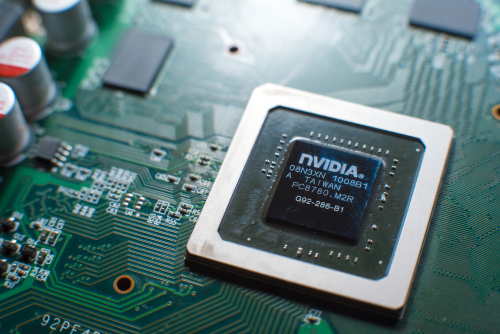



Get new exclusive access to healthcare business reports & breaking news




Scripps Research Translational Institute and Nvidia are partnering to develop artificial intelligence (AI) and deep learning best practices for early disease detection and prevention, health promotion and the streamlining of biomedical research efforts.
With the help of Nvidia, Scripps, a nonprofit organization, will establish a center of excellence for AI in genomics and digital sensors.
The two organizations’ focus is on deep learning, a subset of AI, which they believe is set to play a key role in improving clinical outcomes and reducing healthcare costs.
Scripps’ founder and director, Eric Topol said AI in medicine had tremendous promise, adding it would eventually improve accuracy, efficiency, and workflow in the practice of medicine. “But so much of this depends on validating AI algorithms and proving clinical efficacy. The data inputs from sensors and sequencing, in particular, will play an important role.”
In a statement, Scripps said the partnership will initially focus on developing deep learning-based genetic and digital sensing prediction of atrial fibrillation, an irregular heartbeat which increases the risk of stroke, along with analytics of whole genome sequences, with later expansion to other diseases and datasets.
The two organizations hope that in future they can develop their research to study other conditions like high blood pressure and diabetes.
Nvidia said there was explosion in the quantity of health data, which was being generated by faster and more affordable genome sequencing gear and wearables such as smartwatches, blood pressure cuffs, and glucose monitors and there was need to advance the use of machine learning and deep learning to harvest all this data.
“Nvidia AI experts and Scripps researchers and clinicians will use deep learning and, more broadly, machine learning, to tackle the deluge of genomics and sensor data. Genomics data is doubling every seven months. To keep up, the team will develop deep learning approaches to help improve mutation detection and make genome sequencing more affordable and accessible,” Nvidia said.
Scripps and Nvidia believe there is an opportunity to advance AI in the health sector beyond just diagnoses from medical imaging. They believe that deep learning techniques can be applied to “big data of whole genomic sequences and continuous physiologic sensors, with potential to prevent illness.”
Nvidia vice president of healthcare, Kimberly Powell reiterated how AI was transforming healthcare by using electronic health records and medical imaging to improve diagnoses and treatments: “Our collaboration with Scripps expands these opportunities by tapping into the rapid accessibility of genomic and digital wearable data, and furthers the quest to better predict and prevent disease.”
Scripps is already drawing on Fitbit data for part of the National Institutes of Health’s All of Us research program, which is meant to advance precision medicine and build a large-scale data set from 1 million participants, one of the largest scale data sets ever compiled.
To kick-start the research, Scripps will provide key data sets. One such data set contains more than 1,000 continuous heart rhythm recordings. Another data set has the entire genomic sequence of 1,400 people aged 80 and above who have never been sick.
Researchers will then use a “combination of bespoke neural networks and pretrained models in research data experiments. Assuming all goes well, they’ll package up their work and tools and open-source them,” Venture Beat explained.
Powell said the “goal is to provide methods and infrastructures to the research community at large. We’re seeing pretty massive breakthroughs [in the field]. Dozens of algorithms are becoming FDA approved now, [and some of them] are transforming the radiology workflow…Radiology and imaging have ridden on the coattails of breakthroughs driven by imaging and video.”
Just recently, Nvidia, a graphics processing unit manufacturer, unveiled its supercomputer, the Nvidia Clara platform, which it describes as a combination of hardware and software bringing AI to the next generation of medical instruments assisting with the early detection, diagnosis, and treatment of diseases.
Nvidia has been at the forefront of the adoption of AI across several fields such as self-driving cars, robotics, and healthcare. Within healthcare, the company’s vision is to advance AI into other areas of healthcare and life sciences, “such as medical decision making, hospital administration, and precision medicine with genomics.”
On the other hand, Scripps’ founder, Topol leads a team focused on individual medicine that is part of the Scripps Research Institute, which was last year was ranked by the Nature Index as the world’s most influential research institution on innovation.